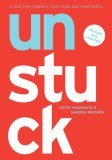Thanks for coming! This first dilemma is a pretty common issue, so feel free to expand or qualify the discussion!
An “actual” conflict occurs when the attorney has represented an opposing party,–for example, when a lawyer has counseled a franchisor, but is then asked to represent the franchisee against the franchisor. This exclusion extends to the entire firm under certain situations.
Advocacy vs. Neutrality
What happens when the attorney is asked to serve as a neutral between the two parties? This might happen when an attorney moves to another firm and thus no longer represents the franchisor.
From an efficiency perspective, an attorney who is already familiar to the parties would be an ideal neutral if accepted by both parties. So, why should an attorney-mediator have a residual obligation to his former client, whereas another professional serving as a mediator may not?
Mediators routinely ask a series of questions to learn just enough about the dispute to determine whether they must disqualify themselves from serving as a neutral.
This “conflicts check” is designed to protect the process: a mediator should decline service as a neutral when it would be unreasonable to expect him of her to be able to protect the mediation process from a position of neutrality.
“Neutrality” doesn’t mean that the mediator does not have a point of view, –or even a solution which s/he feels would work. Rather, neutrality in the mediation context means that the mediator is not supposed to impose his or her views on the parties,–unless specifically asked to do so.
Ideally, one would find out about a conflict before beginning the mediation session. But, what happens when the conflict 1) is apparent but not actual or 2) arises well after the mediator has begun providing services as a neutral?
Subject Matter Expertise
Many clients (attorneys included) believe that a good neutral needs subject matter expertise. The rationale is that when an attorney mediates a dispute within her area of specialization, she brings a lot of knowledge and experience which can benefit both parties. The benefit comes in terms of time, trust and in the process of fashioning durable agreements.
The downside is that one party may come to feel that the mediator is taking sides, particularly when a party is made to feel that his position is untenable or ill-advised. Once a mediator is asked to be evaluative, this is bound to happen, even when ‘evaluation’ results in splitting the baby.
Further, there are many ways to impose one’s point of view. The sarcastic question, the question that presumes an answer, question numerosity, partiality in eye contact, agenda bias, insistence on examination of legality…these are all ways in which neutrality can be compromised. The mediator may not know it, but the parties will sense it.
My gut tells me that evaluative mediation is perfectly appropriate, but that the mediator actually has to work harder to ensure that the parties adopt any resulting agreement as their own. When the parties have counsel, this is easier, but still an issue because counsel are human too: anyone can be overwhelmed by the charisma of a distinguished neutral. What do you think?
When the mediator has a solution in mind, it is psychologically difficult to allow the parties to reach a solution that works for them. This is especially true for people who come to mediation from positions which allow them to impose their will upon others. The obvious case is the judge who transitions from the courtroom directly into mediation, yet fails to appreciate the fundamental principle of self-determination. Lawyers, doctors and other professionals whose value is measured by the quality of their opinions also struggle with this problem.
Conflict in this context is different from the type of problem faced by lawyers serving as advocates. Lawyers are almost always ethically forbidden from representing clients in cases of actual conflict…so what do you think:
- When should mediators decline to serve as neutrals?
- When should the parties be advised of an apparent or actual conflict?
- What did you say to your co-mediator when you think there’s an apparent conflict?
- How do you as a co-mediator help balance out an apparent conflict?
